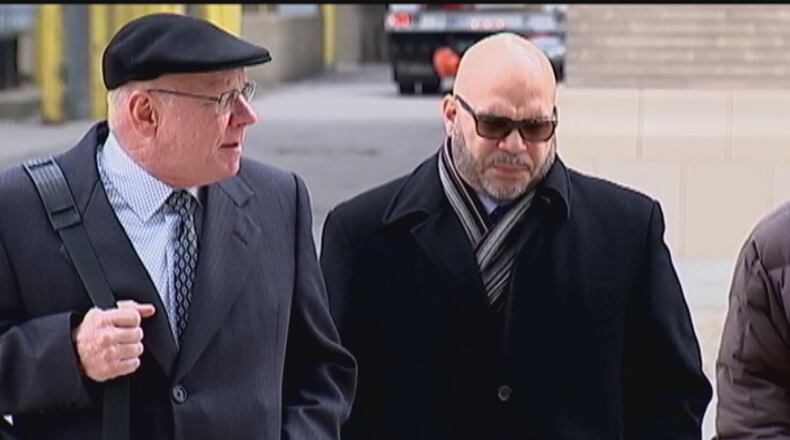When he is released from prison, Winburn will be put on supervised release for two years.
Winburn in February agreed to accept a plea deal that dismissed five other felony counts.
“As a result of this offense, of course, there is damage to the operations of the government, the city of Dayton and programs that are very, very important,” Rose said.
Winburn committed one of most serious economic crimes by essentially putting “his thumb on the scale” of the city’s bidding process by sharing internal documents that would give a bidder an unfair competitive advantage, said Assistant U.S. Attorney Brent Tabacchi.
Winburn, 46, deprived honest and legitimate companies of a fair shot at winning city of Dayton business, and his actions hurt the city’s bidding process and the government organization, he said.
“It’s actions like this that do erode and continue to erode the public’s trust in those who should be representing them,” Tabacchi said.
This was not an isolated incident, because Winburn also lied to the FBI when he said he took the appropriate steps to verify that a company was a disadvantaged business, Tabacchi said.
Between July 2015 and July 2016, Winburn gave an identified individual confidential information about an upcoming city of Dayton contract.
Winburn accepted envelopes containing cash payments totaling more than $6,500, according to a statement of facts.
Winburn said the last 15 months has been the worst time of his life. Wiping tears from his eyes as he spoke during Wednesday’s court hearing, Winburn apologized for his actions, describing them as “selfish.”
“I breached the public faith and acted in a corrupt way, and I allowed my ambition to override my duty,” he said. “While I did not intend to cause harm, I understand that this is not a victimless crime.”
Winburn said he caused irreparable damage to his family name and broke the trust of friends, colleagues and the community. He said he can’t change the past but he promised to learn from it.
“I tried to help myself, but instead I only hurt myself,” he said. “I have learned that when I place my interest ahead of others, I invite disaster.”
Winburn said he accepts responsibility for his actions and his misconduct managed to “undo” decades of service.
Winburn’s attorneys asked the court in a sentencing memo to impose a sentence of probation.
They said he had no criminal history and his actions were motivated by “misplaced” pride and ambition, not greed. They said he suffered public and private humiliation, psychological punishment and there have been severe consequences to his career, finances and personal life.
“It’s rightfully proper to take into consideration a lifetime of law-abiding, community-contributing living,” said attorney David Williamson.
Nine family members sent letters to the court in support of Winburn. Other community members also submitted letters meant to attest to Winburn’s character, remorse and positive potential.
Judge Rose said Winburn’s comments seem sincere and it does not seem like Winburn has a high risk of re-offending.
But Rose said Winburn’s criminal actions hurt people’s perceptions, respect and trust in government. He said his sentence must deter future criminal conduct and protect the public from similar violations moving forward.
Winburn faced a maximum sentence of 10 years, and the advisory sentencing range was 12 to 14 months in prison.
Winburn will be required to complete 50 hours of community service within the first two years of supervision. He also will be required to pay $8,500 in restitution to the clerk of courts, but he was not fined.
About the Author

